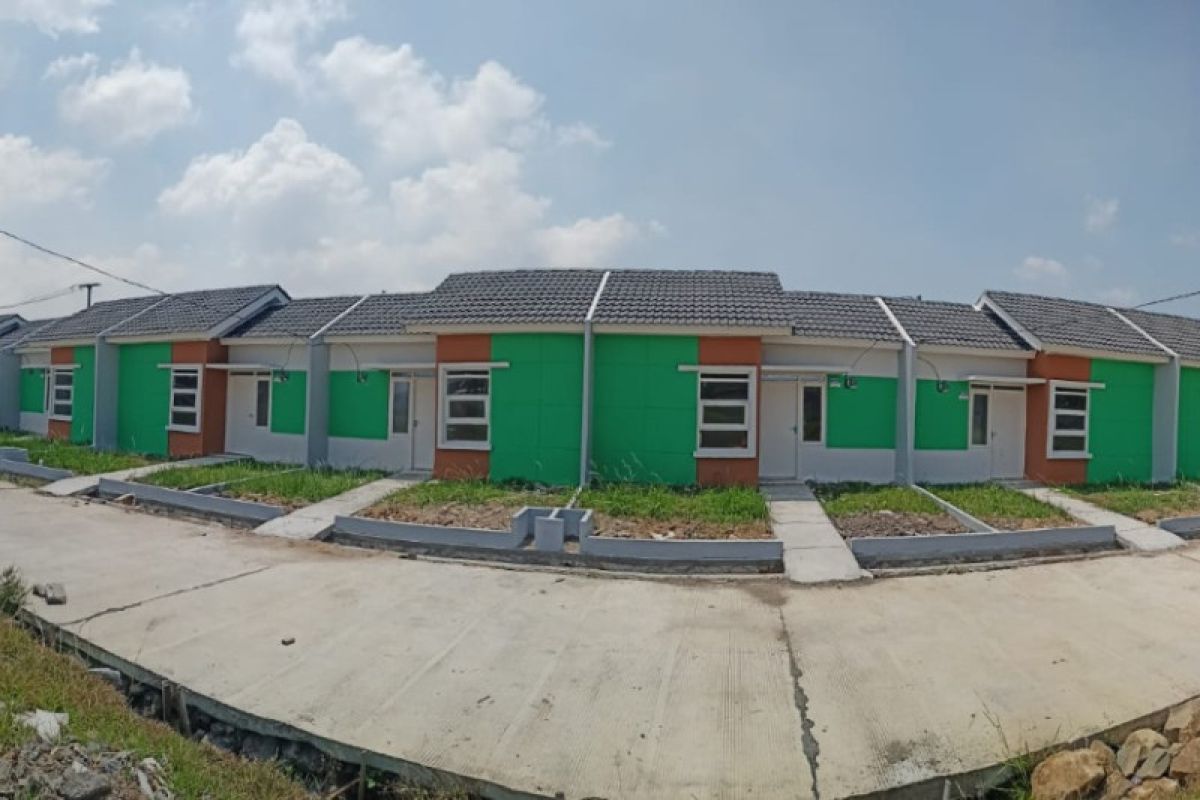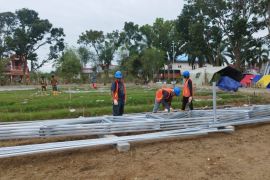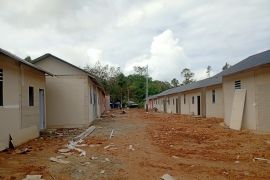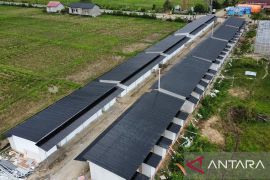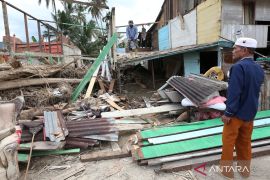The government's backlog data shows that the gap between the number of constructed houses and the number of houses that the people need reached 12.7 million in 2021.
This figure becomes the foundation for the government to provide housing ownership subsidy in the coming years.
The issue of global economic recession in 2023 became a challenge to provide housing, especially in relation to the people's purchasing power.
Nonetheless, housing sector actors remain optimistic that the purchasing power of formal workers, state civil apparatus (ASN), private sector workers, and state-owned enterprise employees is still high to purchase a house.
This is strengthened by the statement from State-Owned Bank PT Bank Tabungan Negara (Persero) Tbk's President Director, Haru Koesmahargyo, who noted that the demand for housing, especially for subsidized housing, remains high in 2023.
Related news: Indonesia, Brunei explore cooperation in IKN development
This is also supported by the government's efforts to increase subsidy budget allocation for the housing sector.
In 2022, the government has allocated housing subsidy fund with the Housing Financing Liquidity Facility (FLPP) scheme, worth Rp23 trillion, to finance 200 thousand units of subsidized housing.
In addition, there is the Savings-Based Housing Financing Assistance (BP2BT) worth Rp888.46 billion for 22,586 units of housing.
Thus, for 2023, the government aims to distribute housing subsidy aid for 274,924 units, worth Rp34.17 trillion, sourced from the state budget of Rp29.53 trillion and the people's fund of Rp4.64 trillion.
For the FLPP Homeownership Credit (KPR), the government raised the subsidy fund to 220 thousand units.
Given the large housing backlog, the one million houses program target is no longer relevant. A bigger target, such as the 10 million houses program, is needed, so that in 2045, this housing backlog can be handled.
Related news: Ministry, Finnish government explore cooperation for IKN development
Challenges
In 2023, housing financing distributor banks encounter several challenges, starting from the threat of an increase in the benchmark interest rate and credit restructuring for debtors affected by COVID-19 that ends in March 2023.
In addition, various policies will become an effort for housing finance channeling banks to maintain performance, such as the minimum reserve requirement (GWM) and risk-weighted assets (RWA).
Moreover, there is the countercyclical buffer that mandates banks to strengthen business quality, profitability, and capital.
To handle these challenges, Bank BTN prepares six short-term initiative recommendations in 2023.
These include establishing a certain interest rate for every income decile group. For instance, 4-5 million decile receives five percent, while 6-8 decile receives seven percent.
Other recommendations include adjusting the KPR subsidy period to 10 years, focusing the FLPP quota to special banks that provide housing finance, and offering insurance premium.
The last suggestions involve expediting the Tapera (public housing savings program) membership, and the KPR pilot for informal workers.
In relation to this, Bank BTN will prepare new breakthroughs in the housing financing scheme by presenting the new KPR FLPP model with a 20-year tenor and 10-year subsidy.
The bank will also provide Interest Subsidy Difference (SSB) KPR with a 20-year tenor and 10-year subsidy.
Moreover, BN will introduce the Rent to Own KPR scheme for informal workers, with a tenor of 30 years at the maximum.
This scheme allow customers to rent a house first before owning it, thereby motivating them to own a house.
Another breakthrough is the KPR with the Staircasing Share Ownership (SSO) scheme, specifically subsidy KPR with gradual ownership scheme.
Moreover, BTN expects a special assignment to the insurance sector by the government for the KPR insurance premium tariff subsidy.
Related news: Ministry applies BIM technology to expedite new capital development
High interest
Meanwhile, public housing savings agency BP Tapera's Commissioner, Adi Setianto, noted that the people's interest to utilize the KPR subsidy is very high.
This is based on the FLPP KPR distribution realization data until November 18, 2022, which reached Rp21.27 trillion, or 191,197 units.
Bank BTN became the highest FLPP KPR distributor, with a contribution of over 53 percent, while the second-highest contributor was BTN Syariah, with 11.85 percent.
If the two data are combined, BBTN's market share in FLPP distribution reached more than 65 percent.
Meanwhile, Tapera's financing realization reached Rp636.7 billion, or 4,256 units. From this figure, BTN became the main supporter by distributing Tapera financing for 3,093 housing units, or more than 72 percent.
Other banks are urged to raise their contribution and their role in the KPR program channeling, whether in the form of Tapera fund or FLPP fund distribution.
The involvement of other banks is urgent given that, without active participation of financial institutions, the housing backlog figure will become harder to reduce.
One of the matters that BP Tapera will focus on to reduce the housing backlog is distributing housing financing to informal sector workers.
However, there are several challenges in handling informal workers, including the fact that they do not have a complete financial record, thereby making the verification process difficult.
Informal workers also have limited saving capacity since their income is fully spent for daily necessities. Moreover, the housing program has not reached all informal workers.
The next challenge concerns the fact that from the product standpoint, a specific housing financing program for informal workers does not yet exist.
Related news: Ministry prepares human resources for BIM, geospatial construction
The challenge from the housing financing ecosystem standpoint involves the lack of integrated data for the informal workers' segment and most from this segment exist in villages that are relatively hard to reach.
Public Works and Public Housing Ministry's official, Herry Trisaputra Zuna, noted that the rising housing costs and the 2023 Provincial Minimum Wage increase policy may encourage higher inflation.
This pushes the government to create a housing strategy by finding a balance between supply and demand that is undertaken by handling the selling price and housing financing assistance.
To resolve housing industry challenges in 2023, the government along with stakeholders in the related ecosystem will conduct optimization by improving the capacity of housing financing.
Related news: Ministry to commence constructing Nusantara City's 1B, 1C core areas
The government will carry out the housing financing budget and program planning as well as conduct risk mitigation toward the issue of building quality and target accuracy.
It will also prepare a housing financing program for formal and informal workers as well as create a conducive housing financing ecosystem.
Meanwhile, the government expects BP Tapera to optimize FLPP distribution and the housing financing scheme for formal and informal workers.
BP Tapera is also expected to improve cooperation with distributor banks to expand services and improve the Tapera fund and FLPP fund management.
Moreover, executor banks, such as Bank BTPN, are expected to improve participation within the government financing program as well as housing financing service and efficiency while also issuing affordable housing financing.
Related news: Jokowi accentuates importance of continuity in Indonesian development
Related news: President Jokowi reminds Indonesians to choose caring leader
Editor: Fardah Assegaf
Copyright © ANTARA 2022
